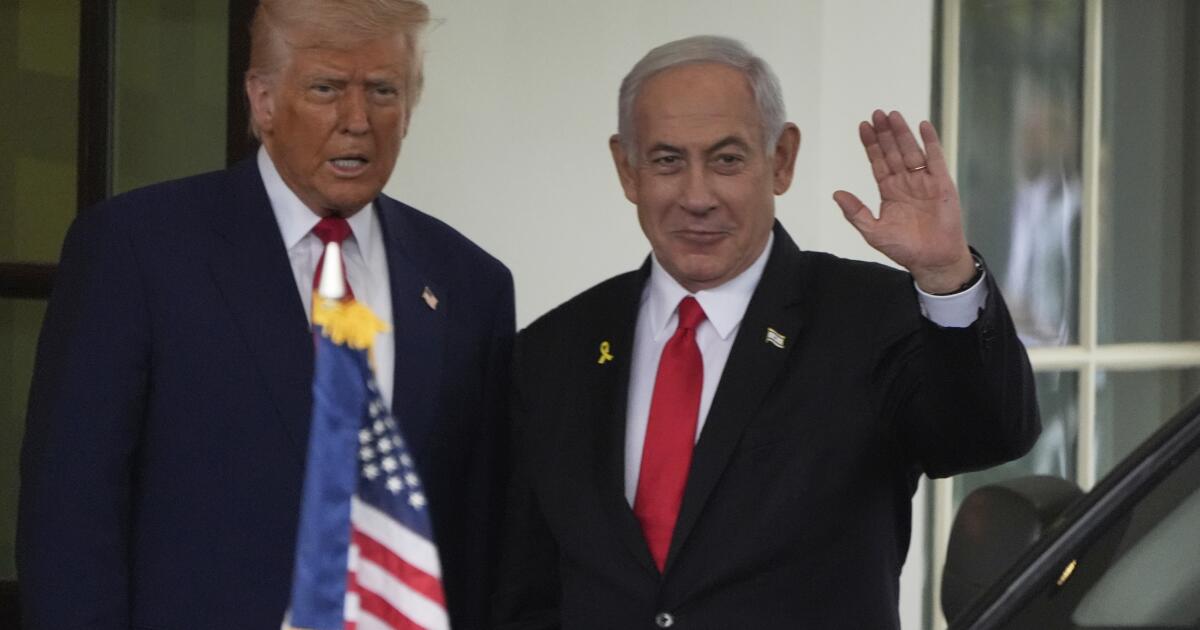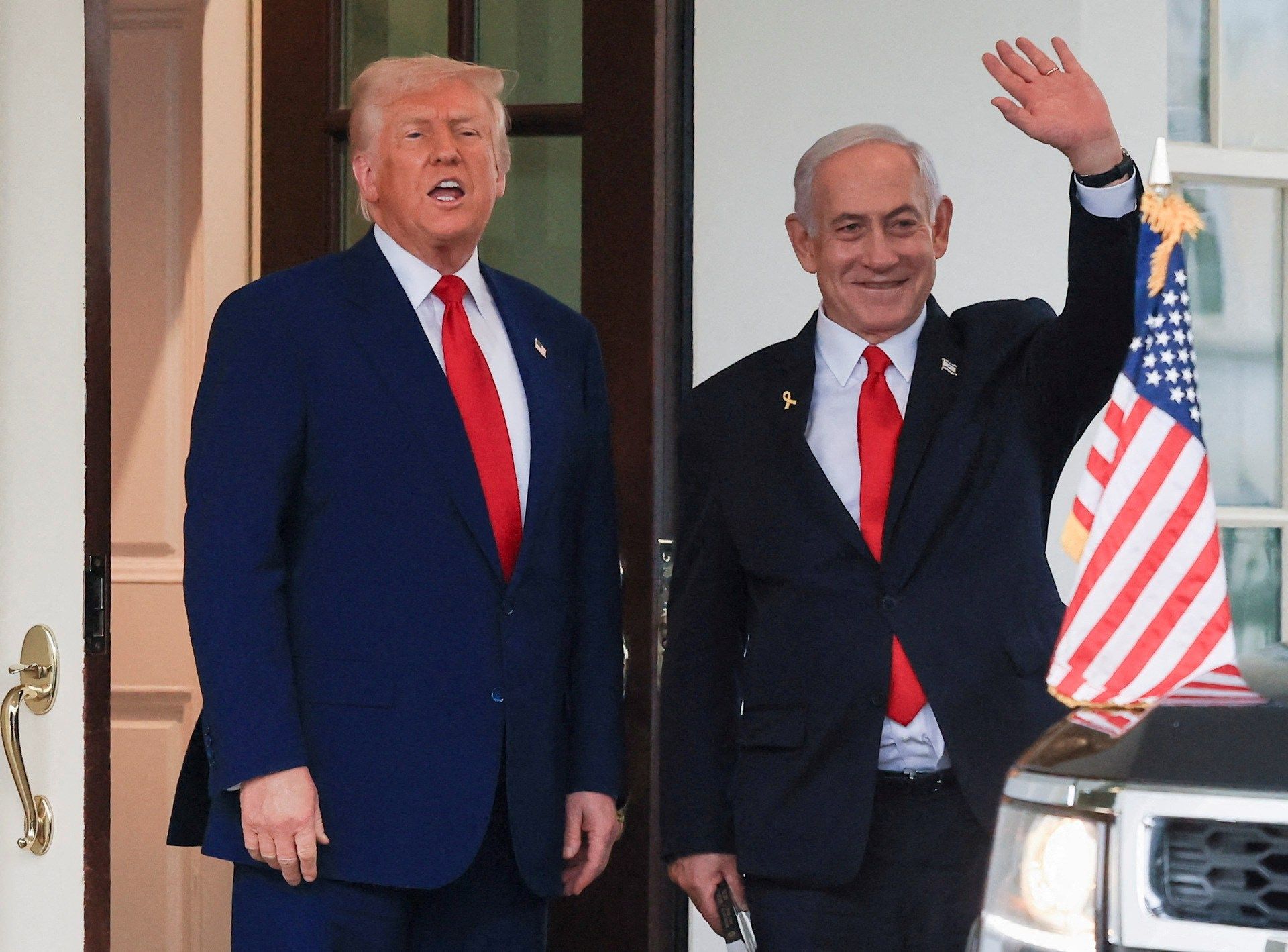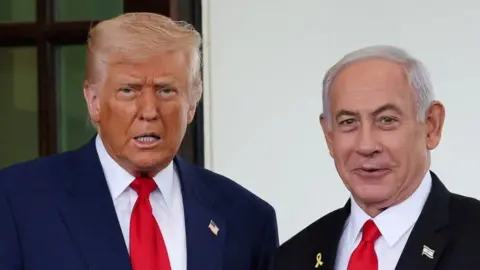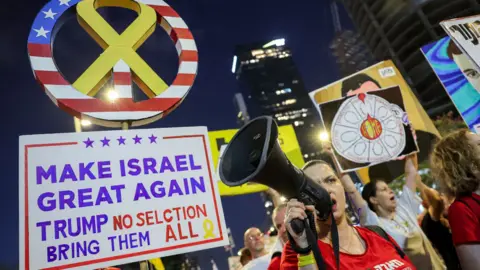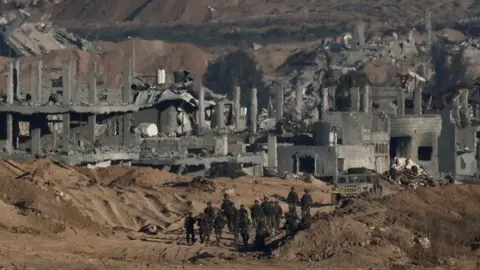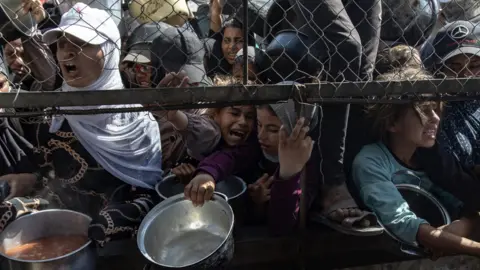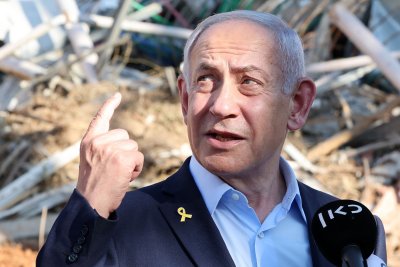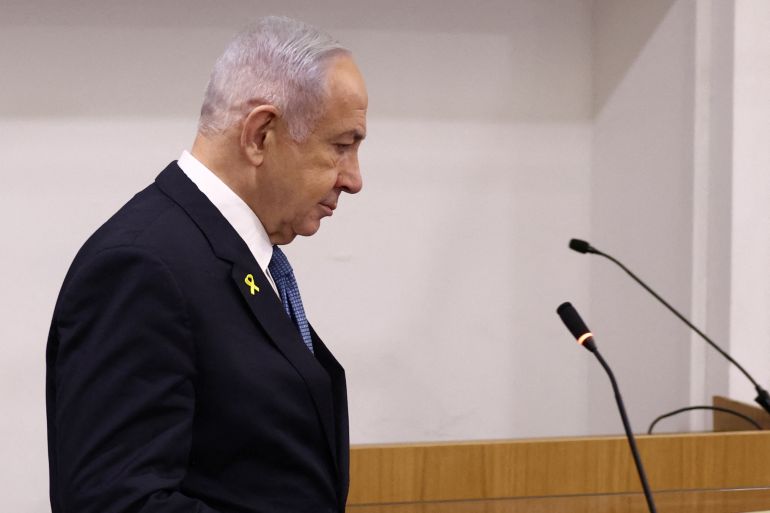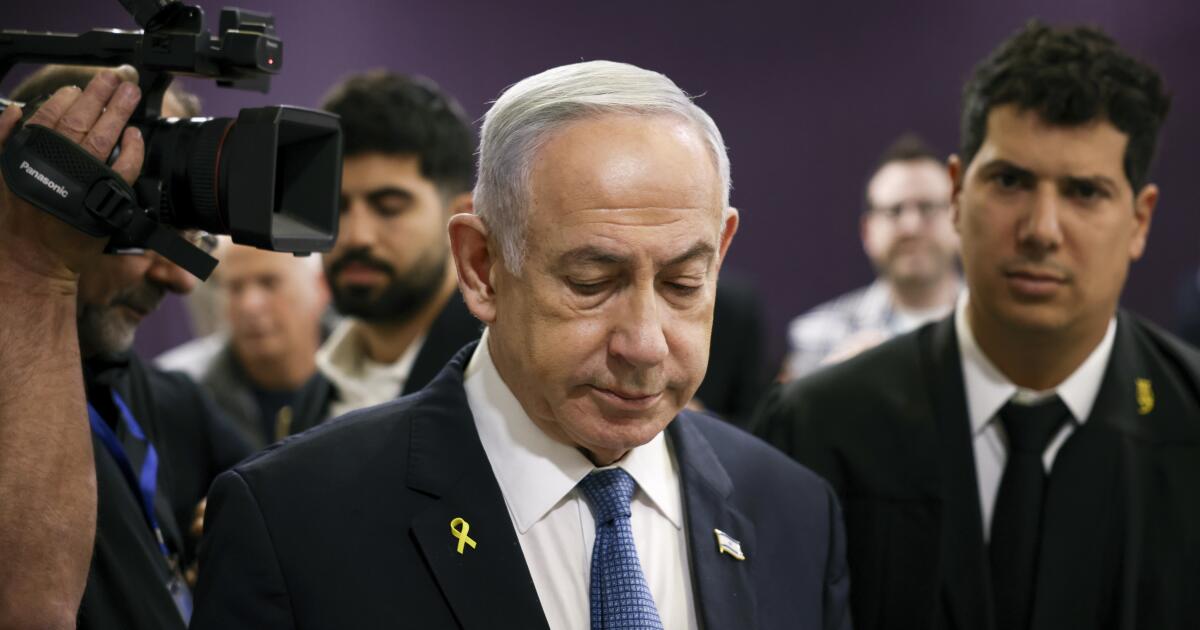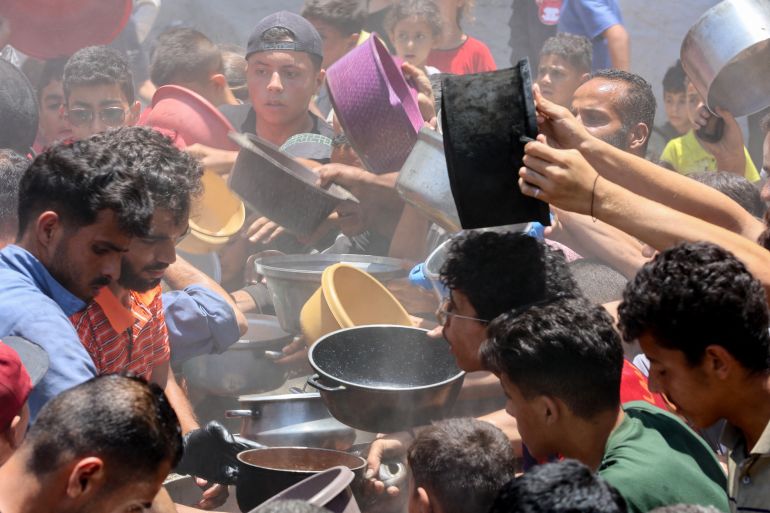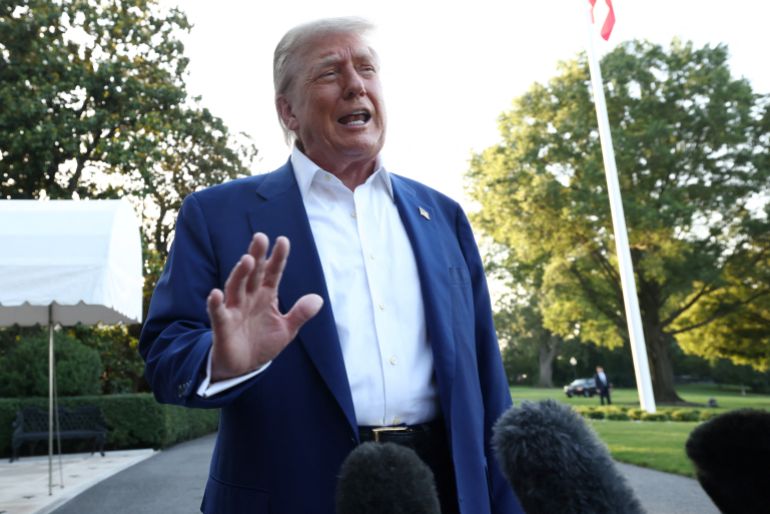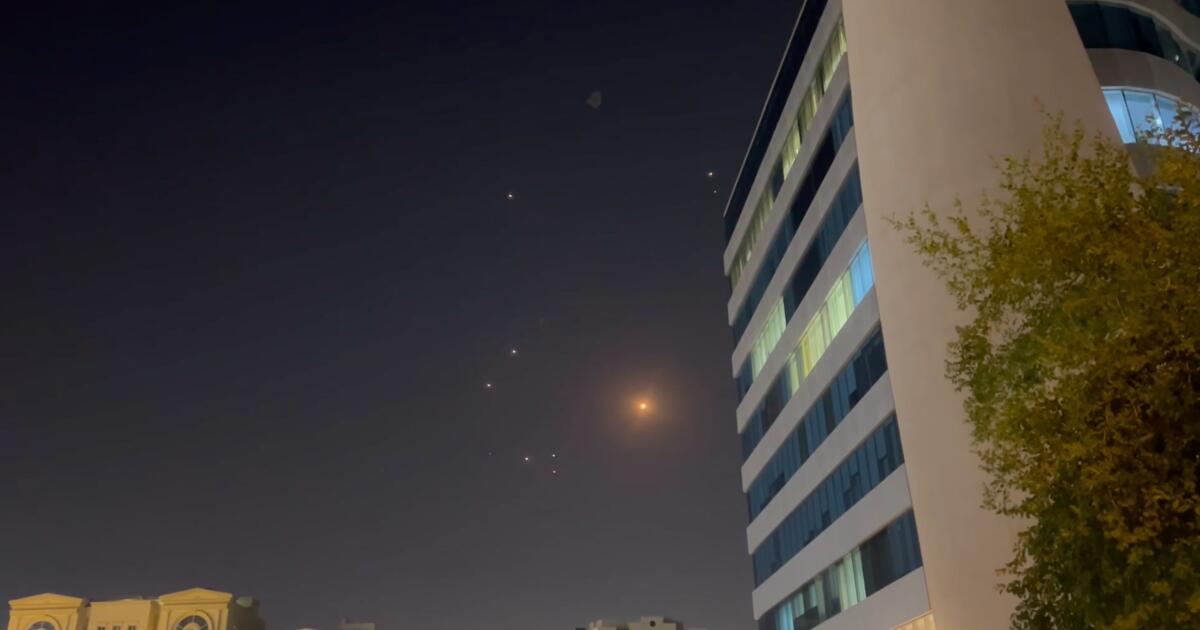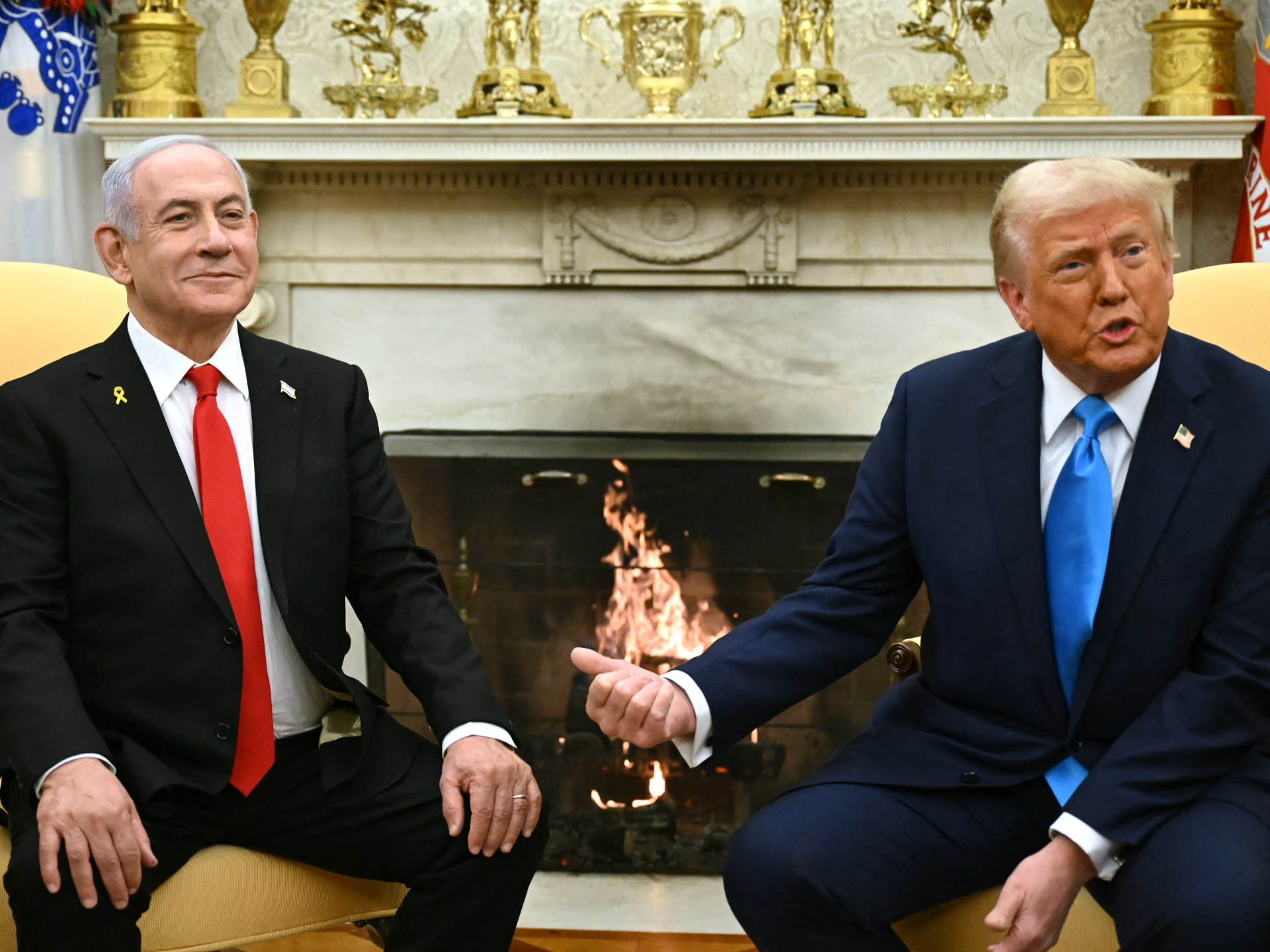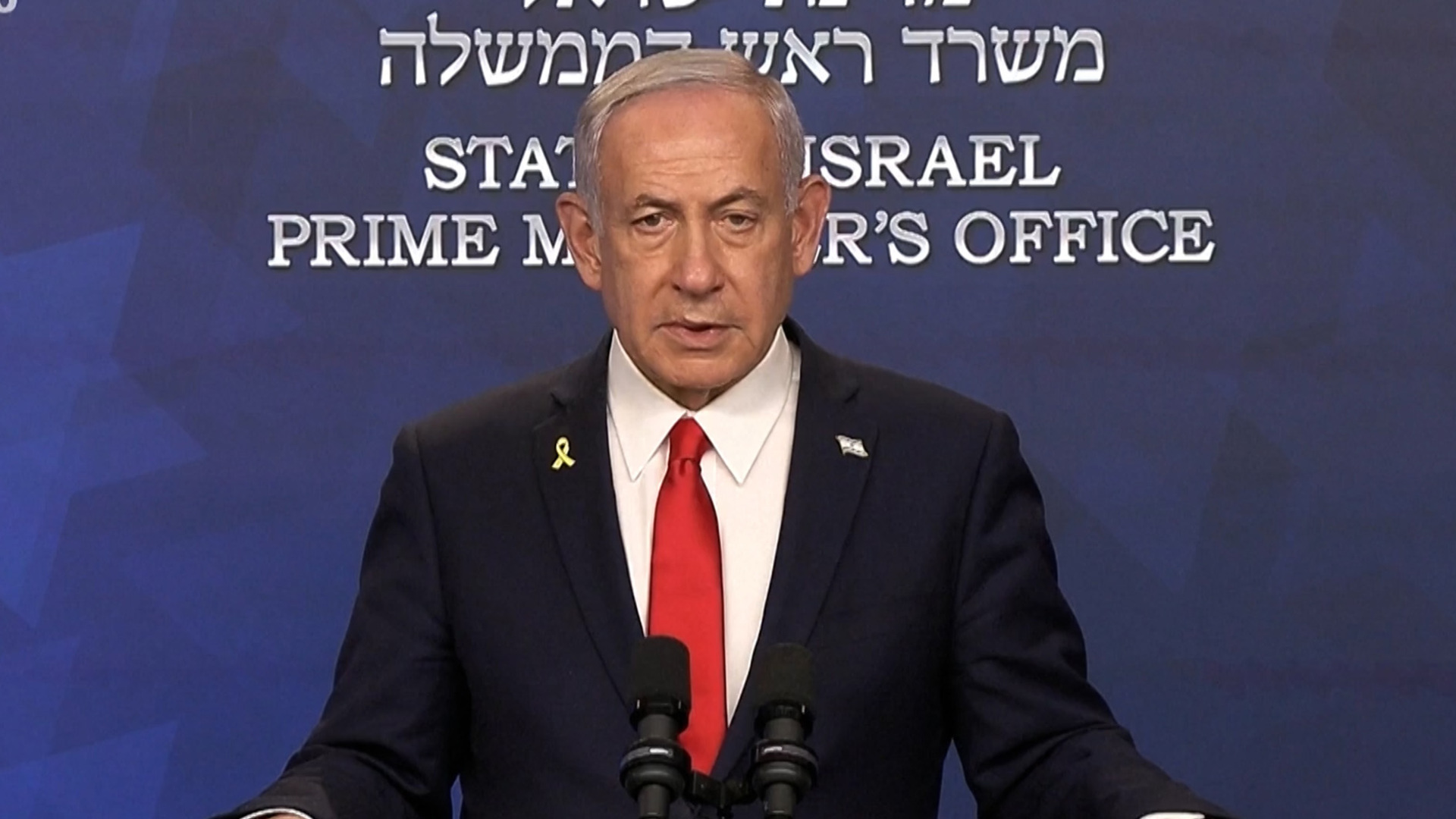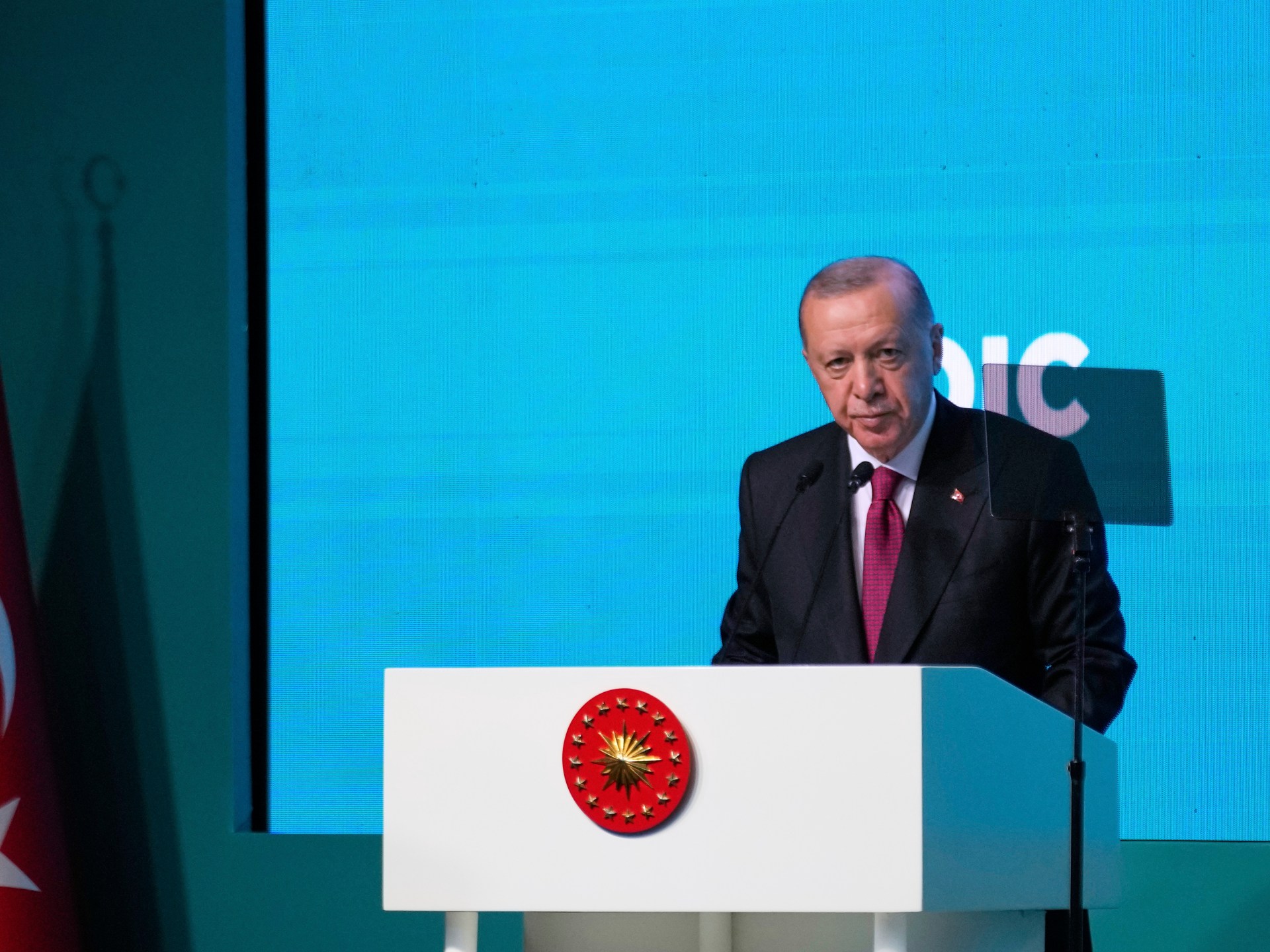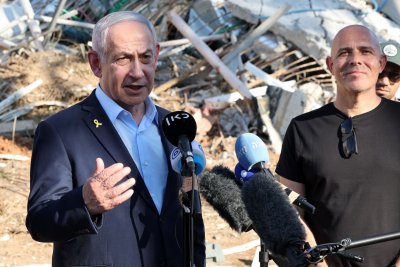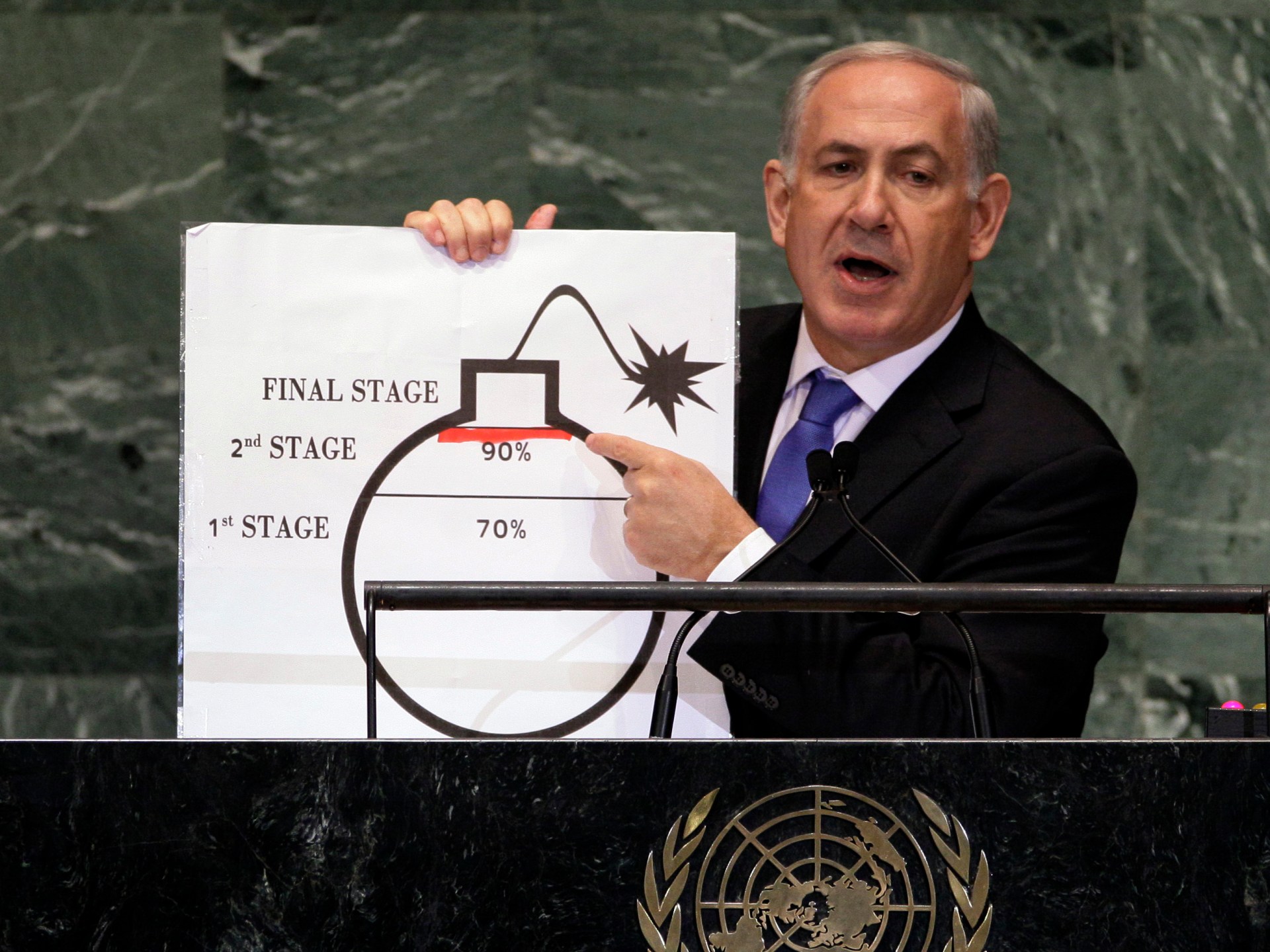Trump and Netanyahu may take a victory lap on Iran, but the Gaza war looms over their meeting
TEL AVIV — Israeli Prime Minister Benjamin Netanyahu and U.S. President Trump might look to take a victory lap on Monday after their recent joint strikes on Iran, hailed by both as an unmitigated success.
But as they meet for the third time this year, the outwardly triumphant visit will be dogged by Israel’s 21-month war against Hamas in Gaza and questions over how hard Trump will push for an end to the conflict.
Trump has made clear that following the 12-day war between Israel and Iran, he would like to see the Gaza conflict end soon. The meeting between Trump and Netanyahu could give new urgency to a U.S. ceasefire proposal being discussed by Israel and Hamas, but whether it leads to a deal that ends the war is unclear.
“The optics will be very positive,” said Michael Oren, a former Israeli ambassador to Washington. “But behind the victory lap are going to be some very serious questions.”
Before departing for Washington on Sunday, Netanyahu praised the cooperation with the U.S. for bringing a “huge victory over our shared enemy.” He struck a positive note on a ceasefire for Gaza, saying he was working “to achieve the deal under discussion, on the terms we agreed to.”
“I think that the discussion with President Trump can certainly help advance that result, which all of us hope for,” Netanyahu said.
‘It changes from day to day’
Israel and Hamas appear to be inching toward a new ceasefire agreement that would bring about a 60-day pause in the fighting, send aid flooding into Gaza and free at least some of the remaining 50 hostages held in the territory.
But a perennial sticking point is whether the ceasefire will end the war altogether. Hamas has said it is willing to free all the hostages in exchange for an end to the war and a full Israeli withdrawal from Gaza. Netanyahu says the war will end once Hamas surrenders, disarms and goes into exile — something it refuses to do.
Trump has made it clear that he wants to be known as a peacemaker. He has repeatedly trumpeted recent peace deals that his administration facilitated between India and Pakistan, the Democratic Republic of Congo and Rwanda, and Israel and Iran, and for years has made little secret of the fact that he covets a Nobel Peace Prize.
He has been pressuring Israel and Hamas to wrap up their own conflict, which has killed tens of thousands of Palestinians, ravaged Gaza, deepened Israel’s international isolation and made any resolution to the broader conflict between Israel and the Palestinians more distant than ever.
But the precise details of the deal, and whether it can lead to an end to the war, are still in flux. In the days before Netanyahu’s visit, Trump seemed to downplay the chances for a breakthrough.
Asked on Friday how confident he was a ceasefire deal would come together, Trump told reporters: “I’m very optimistic — but you know, look, it changes from day to day.”
On Sunday evening, he seemed to narrow his expectation, telling reporters that he thought an agreement related to the remaining hostages would be reached in the coming week.
Leaders are more in sync than ever
Those mood swings also have embodied Trump’s relationship with Netanyahu.
After Trump’s decision to get involved in Israel’s war in Iran with strikes on Iranian nuclear sites, the two leaders are more in sync than ever. But that’s not always been the case.
As recently as Netanyahu’s last visit to Washington in April, the tone was markedly different.
Trump used the photo-op with Netanyahu to announce that the U.S. was entering into negotiations with Iran over its nuclear deal — appearing to catch the Israeli leader off guard and at the time, slamming the brakes on any Israeli military plan.
He also praised Turkish leader Recep Tayyip Erdogan, a fierce critic of Israel’s, in front of Netanyahu, and the two made no apparent progress on a trade deal at the height of Trump’s tariff expansion.
Trump, whose policies have largely aligned with Israel’s own priorities, pledged last week to be “very firm” with Netanyahu on ending the war, without saying what that would entail. Pressure by Trump has worked on Netanyahu in the past, with a ceasefire deal having been reached right as the president was taking office again.
Netanyahu has to balance the demands of his American ally with the far-right parties in his governing coalition who hold the key to his political survival and oppose ending the war.
But given the strong U.S. support in Israel’s war against Iran, highlighted by joint airstrikes on a fortified underground Iranian nuclear site, Netanyahu may have a tough time saying no.
On Sunday evening, Trump said one of the matters he expected to discuss with Netanyahu “is probably a permanent deal with Iran.”
Trump also may expect something in return for his recent calls for Netanyahu’s corruption trial to be canceled — a significant interference in the domestic affairs of a sovereign state.
“Trump thinks that Netanyahu owes him,” said Eytan Gilboa, an expert on U.S.-Israel affairs at Bar-Ilan University near Tel Aviv. “And if Trump thinks that he needs to end the war In Gaza, then that is what he will need to do.”
Trump’s regional vision
The two men will likely discuss the ceasefire with Iran and how to respond to any perceived violations.
But beyond Iran is Trump’s grand vision for a new Middle East, where he hopes that additional countries will join the Abraham Accords, a series of agreements normalizing relations between Arab countries and Israel brokered during Trump’s first term.
Netanyahu and Trump are likely to discuss how to bring Syria into the fold. The country, a longtime enemy of Israel’s, has new leadership after the fall of President Bashar Assad, and experts say conditions might be ripe for some kind of nonbelligerency agreement.
But Trump’s ultimate goal is to include regional powerhouse Saudi Arabia.
The Saudis, whose clout could open the door for other Arab or Muslim countries to join, have expressed interest in normalizing ties with Israel but only if it is accompanied by serious steps toward resolving Israel’s conflict with the Palestinians. For starters, that would seem to require action in Gaza.
“The most important thing [for Trump] is to end the war in Gaza,” Gilboa said. “That is the key to all the regional peace in the Middle East.”
Goldenberg and Price write for the Associated Press. Price reported from Washington.
